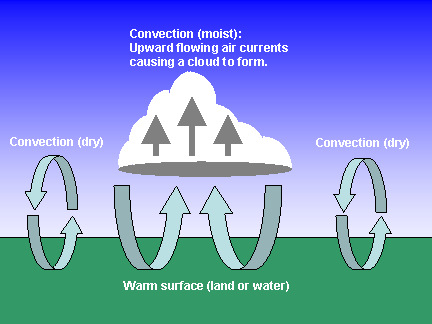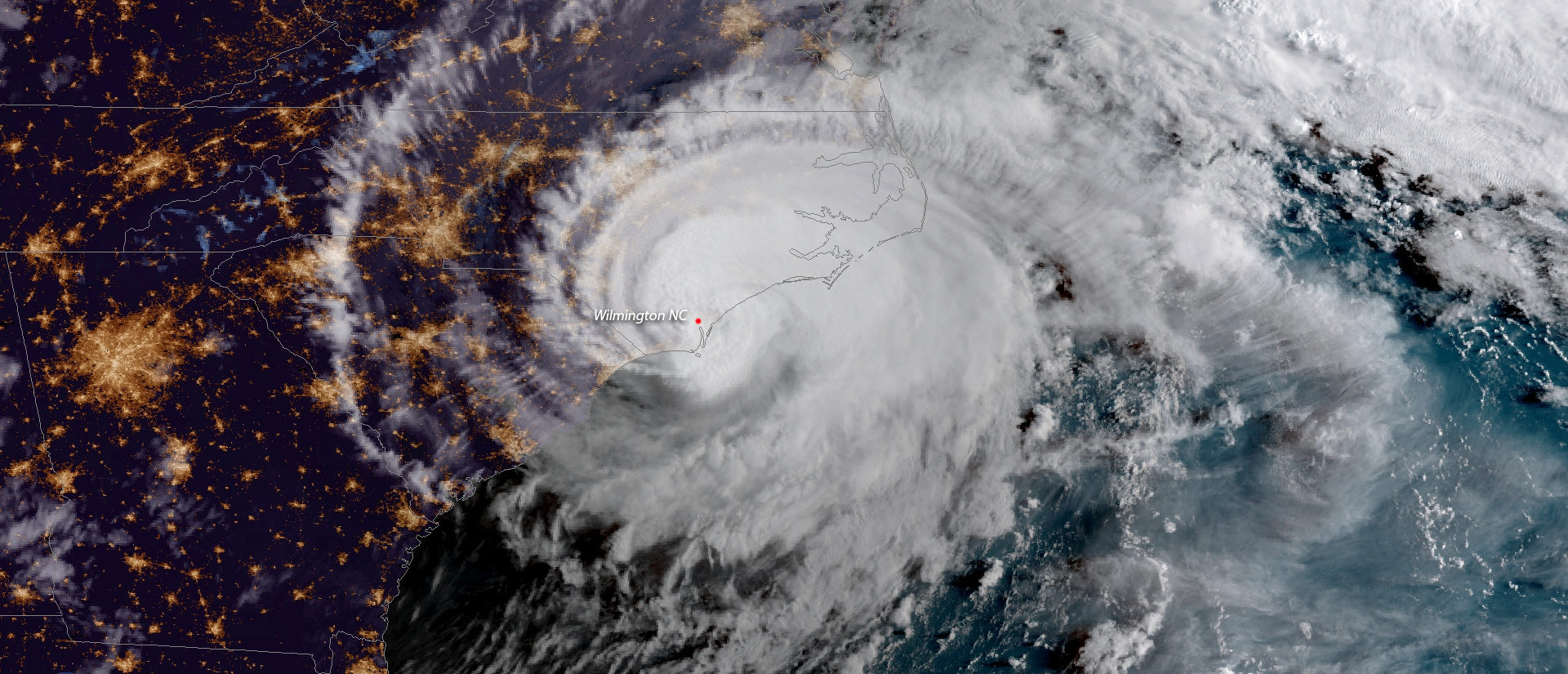
By Michael Bastasch – The Daily Caller
- Climate scientists don’t all agree that global warming made Hurricane Florence worse.
- Scientist Judith Curry called such links “misleading to scientists, the public and policy makers.”
- “There is no reason to suggest that global warming” made Florence worse, scientist Cliff Mass said.
Hurricane Florence made landfall on Friday in North Carolina, bringing heavy rains and flooding. But before the storm touched down in the U.S., scientists and news outlets were already linking the storm to global warming.
However, not all scientists agree that man-made warming is making hurricanes, including Florence, bigger, slower and wetter as is often claimed in the media.
Climatologist Judith Curry called efforts by the “mainstream climate community” to link Florence to man-made global warming “woefully inadequate and misleading to scientists, the public and policy makers.”
“I’ve scratched the surface of the complex issues surrounding the weather and climate dynamics of Florence, but the take home point is that convincingly attributing any of this to human caused global warming is very challenging,” Curry wrote in a blog post on Tuesday.
Some climate scientists and media outlets argued “unusually warm waters” made Florence more powerful than would otherwise be the case.
Penn State University climate scientist Michael Mann and The New York Times’ climate team attributed warming in the Atlantic to global warming. The Times published a video before the storm hit claiming Florence “formed in unusually warm waters.”
“All else being equal, warmer oceans mean more energy to intensify tropical storms and hurricanes,” Mann wrote in The Guardian of Florence’s link to global warming. “All other things being equal, that implies about 10% more rainfall.”
While Florence did bring record rainfall to the Carolinas, was this because the warm waters “supercharged” the storm?
Probably not. An analysis of Florence’s path by Cato Institute meteorologist Ryan Maue showed ocean temperatures were “abnormally cool” for most of the storm’s trek through the Atlantic Ocean.
“Ryan Maue is absolutely correct,” University of Washington climate scientist Cliff Mass told The Daily Caller News Foundation.
Maue’s analysis not only showed that Florence formed, then strengthened, over relatively cool waters, but rapidly weakened once it reached warmer waters near the U.S. coast. Forecasters expected the storm to strengthen, but it was torn apart by wind shear, Mass said.
“There is no reason to suggest that global warming or an ‘ocean heat wave’ supercharged Hurricane Florence,” Mass said. “So the ‘ocean heat wave’ theory is obviously bogus.”
But what about the record rainfall? NPR’s science correspondent said scientists found that Florence was ” a lot wetter than it would have been in a cooler climate, 50 percent wetter.”
NPR’s reporter cited a study published before Florence even made landfall predicting global warming increased the size of the storm 50 miles larger and increased its rainfall by 50 percent. However, that study has not been updated after the storm to see how accurate it was.
When it came to this pre-even attribution study, Curry said the “climate models simply are not fit for this task.”
Mass also noted that “most of the major impacts of the storm was because it slowed down near the coast, causing an extended period of rain,” adding there’s “no credible theory of observational evidence that such slowing down has anything to do with global warming.”
Some scientists and reporters linked Florence’s slow speed to a study by University of Wisconsin-Madison scientist James Kossin showing a slowdown in tropical cyclone speeds since 1949.
Kossin told The Atlantic that “scientists have long hypothesized that tropical cyclones will move more slowly in a warmer world” in an article about Florence’s slowing down.
Kossin’s study, however, did not attempt to attribute it to either global warming or natural cycles. Kossin suggests global warming could be the culprit, but his study does not show it.
Curry noted that “the effect described by Kossin is very different from the out-and-out stall that we saw for Florence and Harvey in 2016.” Both storms slowed because of “blocking high pressure systems,” which is distinct from what Kossin looked at.
Ref.: https://dailycaller.com/2018/09/19/scientists-global-warming-hurricane-florence/
Comment:
There’s no empirical, real world data connecting (Man Made) ANYTHING to any storms, hurricanes or trends of such storms or hurricanes. Such claims are nothing more than leftists feel-good (DISHONEST and FAKE) talking points.
New Study: Climate Models Are ‘Prone To Errors’
https://www.newscats.org/?p…
The surface of the earth cools by convection, not radiation. The atmosphere cools by radiation, not convection. The difference?
Min. 1 km. and min. 6,5C.
If the upper, cooler atmosphere is losing energy (heat) out to space slower or faster because of CO2 doesn’t really matter because a cooler, upper layer of the atmosaphere can’t warm a warmer, lower layer, cold doesn’t heat something that is already warmer.
That means CO2 is meaningless
MAKING THE EARTH LIVEABLE:

“Convection (both dry and moist) help to make the Earth liveable by removing excess heat from the surface, which is where most of the solar energy is abrobed by the Earth, and transporting it high into the atmosphere. It has been calculated that, without convection, the average surface air temperature on the earth would be about 125 deg. F, rather than the current 59 deg. F.
WHAT GOES UP, MUST COME DOWN:
All of the air rising through convection must be balanced by an equal amount of sinking air elsewhere. This, clouds represent vertical circulation systems, involving rising air where the visible cloud forms, and sinking air around the cloud.”
http://www.weatherquestions…
Related
What’s surprising about hurricane Florence? It thrived in “abnormally Cool” waters

By Michael Bastasch – The Daily Caller
- Hurricane Florence tracked mostly in “abnormally cool” waters, according to Cato Institute atmospheric scientist Dr. Ryan Maue.
- Data on Florence’s track contradicts claims that the storm was “supercharged” by global warming.
- Forecasters expected Florence to strengthen in warmer waters, but that didn’t happen.
Even before Hurricane Florence barreled into the North Carolina coast, a misleading claim about the storm and global warming echoed across the internet.
Florence made landfall in North Carolina as a Category 1 hurricane on Friday, but the day before, The New York Times published a video claiming the storm had formed in “unusually warm waters” in the Atlantic Ocean, heated up by man-made global warming.
In comparing Florence to last year’s Hurricane Harvey, The Times’ reporter said “both of these hurricanes formed in unusually warm waters.” That’s false, according to Cato Institute atmospheric scientist Ryan Maue.
“Ocean surface temperatures along Florence track were abnormally cool for most of its life-cycle partly due to the unusual, higher latitude of the storm,” Maue tweeted on Tuesday night. “The integrated [sea surface temperature] track-based anomaly averaged from Sept 4-11 was 0.6°C below 1985-2017 ‘normal.’”
Florence formed in colder than normal waters in the eastern Atlantic Ocean. Florence also reached major hurricane strength (Category 3 or higher) in cooler waters, before heading into warmer waters where it didn’t do what weather forecasters expected — it weakened and fell apart.
In fact, what’s amazing is how strong the storm got and how long it stayed together over “marginal” ocean temperatures, Maue tweeted.


